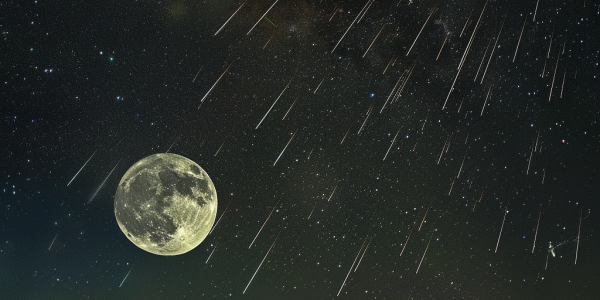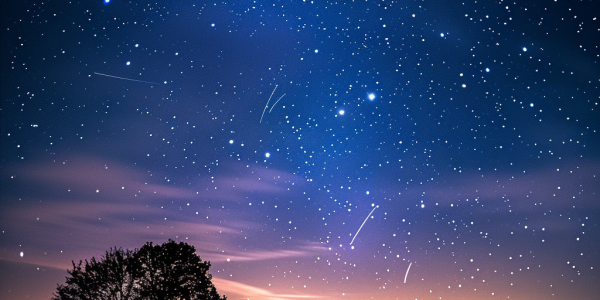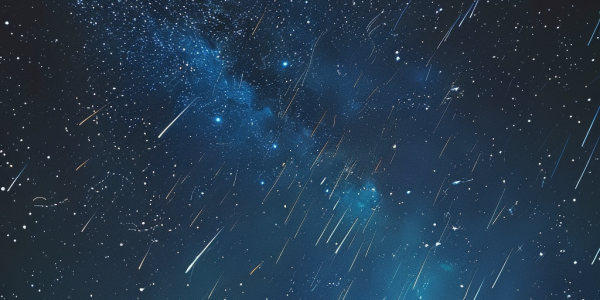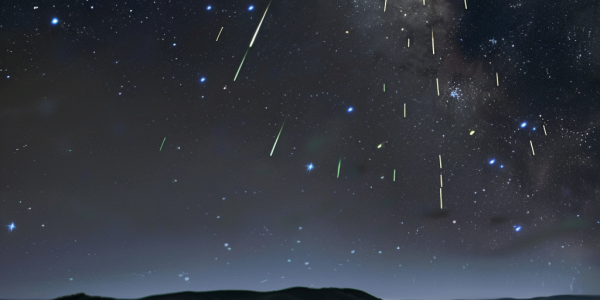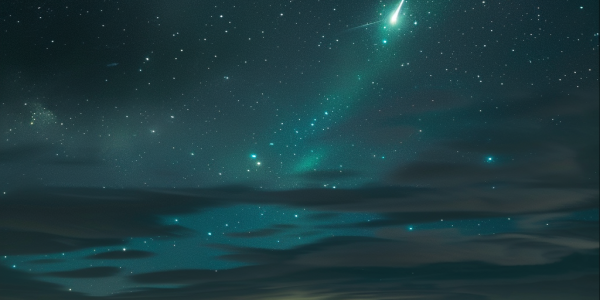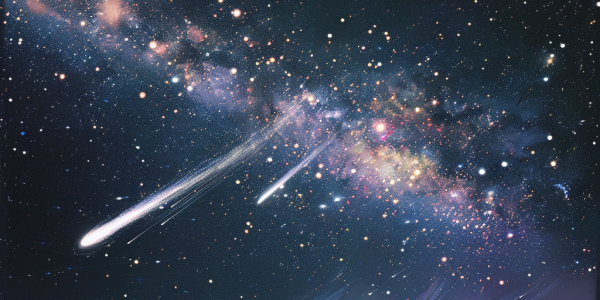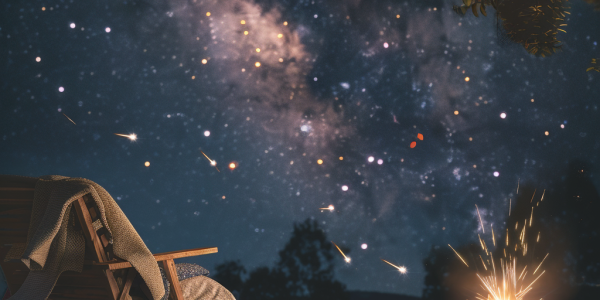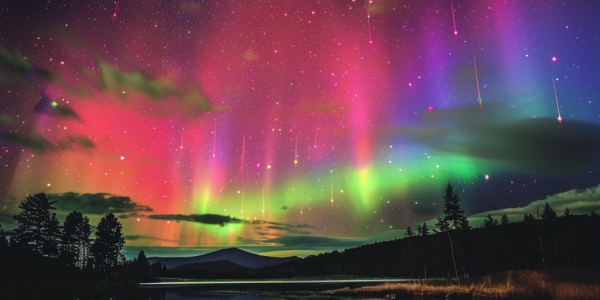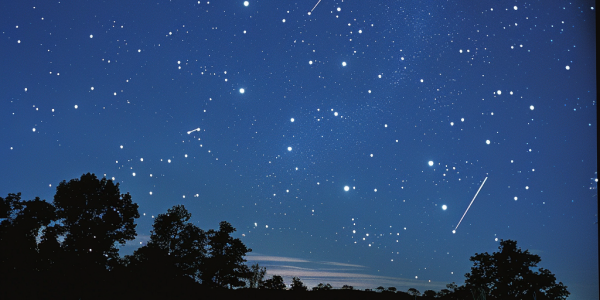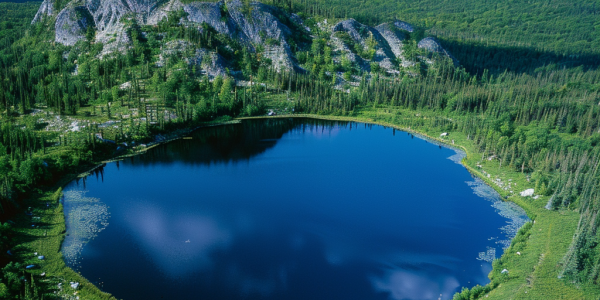Geminid Meteor Shower Sparks Lunar Impact Observations
Recent observations by astronomer Daichi Fujii reveal that the annual Geminid meteor shower may be impacting the Moon, with bright flashes captured on its surface. The Geminids, known for their vibrant display, peak around December 8, 2024, offering an exceptional stargazing experience. As experts confirm the alignment of these impacts with Geminid meteors, skywatchers are encouraged to find dark spots for optimal viewing. This year’s meteor shower promises to be a memorable cosmic event.
Residents in Indiana Witness Mysterious Flash and Boom Linked to Geminid Meteor Shower
Residents across Indiana were amazed by a sudden flash and loud boom early Tuesday, likely linked to the ongoing Geminid meteor shower. Eyewitnesses reported seeing a bright light around 4 a.m., sparking excitement for the peak of this celestial event, expected on December 13 and 14. Learn how to best observe the Geminids and experience the beauty of the night sky this holiday season.
Geminid Meteor Shower Set to Peak Next Week
The Geminid meteor shower, peaking on December 12-13, 2023, is set to dazzle stargazers with up to 120 meteors per hour. Known for its vibrant yellow and green meteors, this annual celestial event is caused by debris from asteroid 3200 Phaethon. For optimal viewing, find a dark location and lie back to enjoy the spectacular display lighting up the December night sky.
Prepare for the Leonids Meteor Shower: Peak Viewing on November 16-17, 2024
Get ready for the Leonids meteor shower, peaking on November 16-17, 2024. Known for their stunning shooting stars, these meteors travel at 44 miles per second and can be seen from both hemispheres. Despite a nearly full moon, find dark locations to enhance your viewing experience. Don’t miss this annual celestial spectacle!
Spectacular Meteor Fireball Lights Up Alberta Skies
On November 13, 2024, residents of Airdrie and nearby areas witnessed a spectacular greenish-blue fireball streaking across the sky, captivating early risers and stargazers. This meteor sighting, reported around 6:34 a.m., sparked excitement on social media as locals shared videos and images. NASA explains that such fireballs occur when meteoroids enter the atmosphere, creating stunning light displays. With upcoming meteor showers like the Orionids and Southern Taurids, stargazers have more opportunities to experience these celestial wonders.
Breakthrough Technique Enhances Early Detection of Hazardous Long-Period Comets
Astronomers have achieved a breakthrough in detecting potentially hazardous long-period comets (LPCs) using a novel technique that analyzes meteoroid trails. This method allows for early identification of ‘planet-killer’ comets, enhancing planetary defense strategies and offering crucial advance warnings. By studying the trails left by these comets, scientists can predict their paths years before they approach Earth, significantly improving our preparedness for potential cosmic threats.
Southern Taurid Meteor Shower Set to Dazzle Sky-Watchers
Get ready for the Southern Taurid meteor shower peaking this week! Known for its spectacular fireballs, this celestial event offers sky-watchers a chance to witness stunning meteors after midnight on early Tuesday. With favorable viewing conditions and the moon only 11% full, grab some hot cocoa and enjoy the beauty of the night sky. Don’t miss this awe-inspiring astronomical display!
Rare Celestial Event: Aurora Borealis Meets Perseid Meteor Shower
Stargazers experienced a rare celestial event on August 12, 2024, as the Aurora Borealis combined with the Perseid meteor shower, captivating viewers worldwide. This spectacular display, enhanced by a significant solar event, allowed the Northern Lights to be seen in regions typically devoid of such beauty. Discover the magic of this unforgettable night in our latest article.
Prepare for the Draconid Meteor Shower: A Celestial Event This October
Get ready for the Draconid meteor shower peaking on October 7-8, 2023. Ideal viewing conditions with a 27% illuminated moon make this a perfect opportunity for stargazers. Expect around 10 meteors per hour, best viewed shortly after sunset. Gather your friends and enjoy this celestial event!
Potential Meteorite Impact Site Discovered in Quebec
A potential meteorite impact site has been discovered in Quebec’s Cote-Nord region, identified by outdoor enthusiast Joel Lapointe. The 15-kilometer-wide circular formation around Marsal Lake is under investigation by geophysicist Pierre Rochette and his team. If confirmed, this could be the first new impact crater found since 2013, adding to Canada’s 31 known impact sites. Researchers are analyzing samples and searching for shatter cones to verify the impact hypothesis, with further studies planned for 2025.

